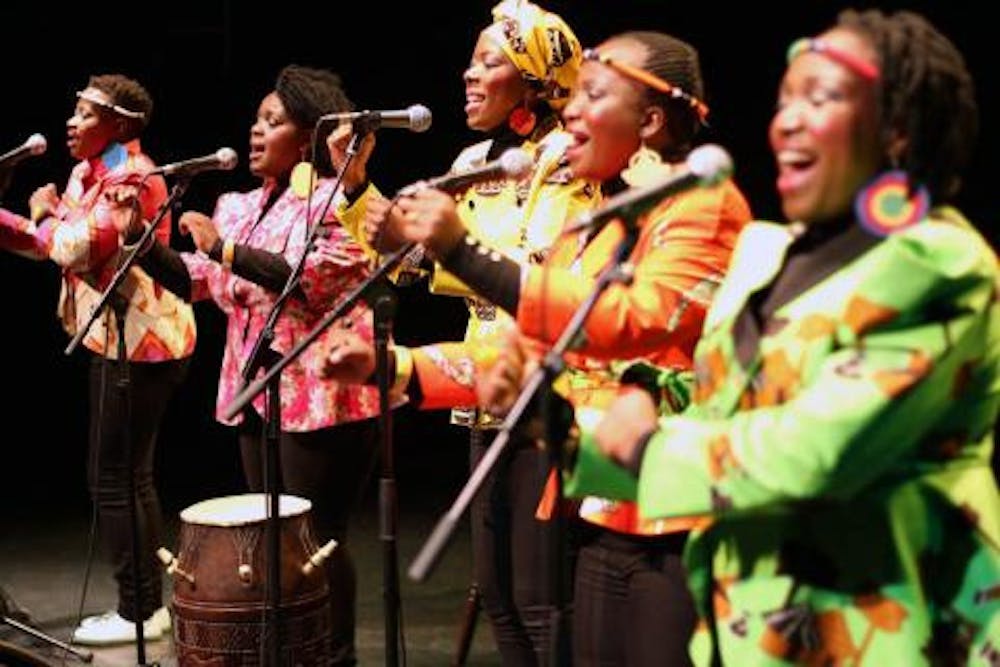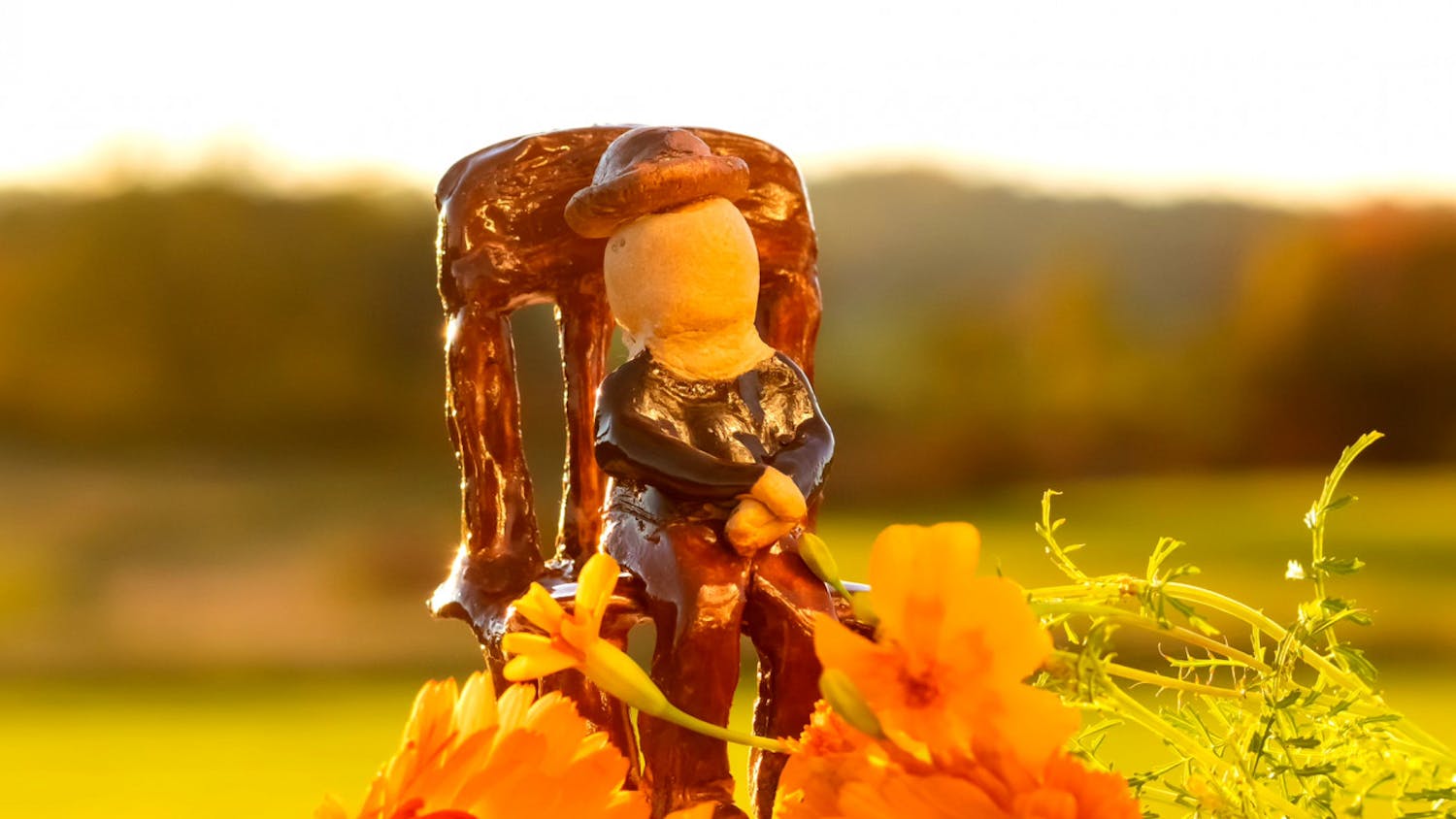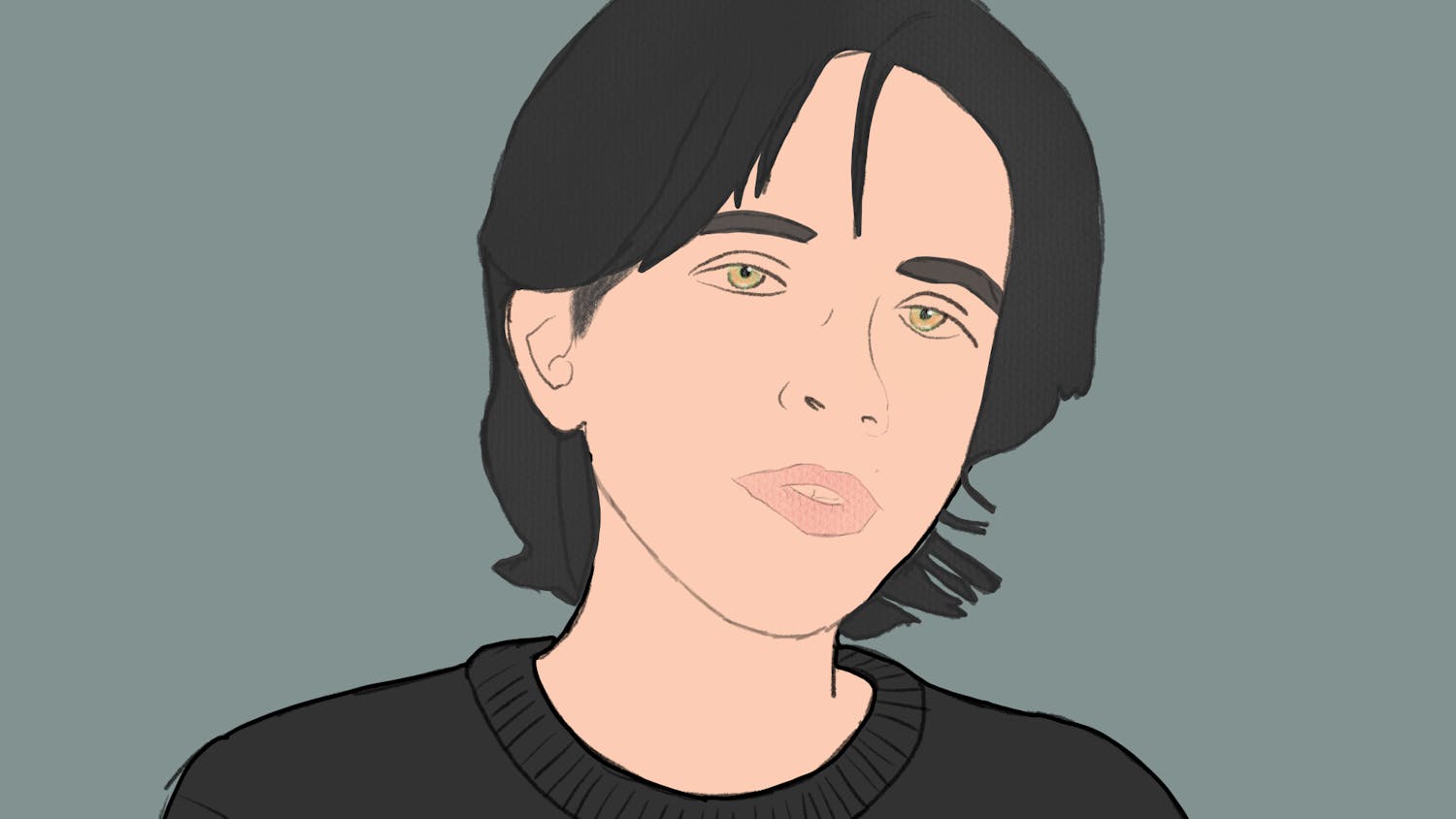Hailing from southwestern Zimbabwe, the a cappella quintet Nobuntu could have been enjoying the frequent sun and 80-degree days that usually mark this time of year at home. Instead, they chose to travel to Vermont to perform for the Middlebury community on Feb. 18.
Zanele Manhenga, the de-facto emcee, addressed this matter to the crowd in Robison Hall after their opening number.
“I have a serious question: How do you all live in this weather?” Manhenga asked, which resulted in peals of laughter from the crowd.
Humor was just one of Nobuntu’s many forms of expressions that evening as they engaged the audience with a musical repertoire composed of original songs, traditional Zimbabwean folk standards and African-American spirituals.
The word Nobuntu directly translates to “mother of humanity” in Ndebele, one of Zimbabwe’s 16 official languages. To the group’s members, it is an idea that embodies “humbleness, love, purpose, unity and family from a woman’s perspective.” They choose to explore these values through music, which they see as a crucial vehicle for social change. Thus, many of their songs' lyrics center on issues of race, religion, abuse and gender.
As a way to access these topics, much of the group’s music portrays basic human emotions like kindness, pain, courage and faith. During the performance, Manhenga introduced each song by explaining what it means to them and their culture. These descriptions often came out as passionate statements that urged the audience to join them in a greater social cause.
From a musical perspective, Nobuntu did everything with ease. Their harmonies soared and their dynamics were perfect, yet the most notable achievements of their performance was their ability to generate polyrhythms (when multiple rhythmic patterns are layered) and to change these rhythms and the tempo at a moment's notice. All five members were cued into exactly what they needed to do. There was no inkling of stage fright — in fact, they would fist bump and high five each other in the middle of the performance as if they were having a casual conversation.
Nobuntu marked many of their songs with some kind of choreography. Standing in line behind their microphones, they would slightly bend their knees to the beat, sway their bodies in the same direction or make matching gestures with their arms. If a song concerned love or hope, they would lay their arms open in front of their bodies, with their palms turned upwards, and bring them back into a self-embrace. If a song praised ‘the Almighty’ or ‘the Creator,’ then they would lift their arms above their heads. Other songs gave way to energetic, full-body performances, where one or two of the singers would emerge past the microphone stands to dance. In one song, two members danced to mimic horses, waving horsetail sticks around their bodies while performing galloping motions.
They kept a number of percussion instruments readily accessible so that they could stimulate these dances, including a hand-drum, tambourine, shakers and mbira (thumb piano). The instruments created a groove for the dancer to step with, to which the dancer would add noises from shaking wooden beads that were wrapped around their ankles. In these moments, the music and dancing were symbiotic, accentuating one another and amplifying the energy in the room.
Nobuntu’s songs were also notably feminist, as they wrestled with the mistreatment of women in their culture and the ways in which women are socialized to become housewives. One of their songs in particular, “Moya Moya,” concerns the story of a woman who is infertile and has to reckon with the antipathy that her society holds toward barren women. During the song, Nobuntu singer Heather Dube acted out this situation, falling to the ground screaming in agony at the front of the stage.
Toward the end of the show, Nobuntu offered the audience an interactive experience by teaching how to sing a part of their original song, “Nobuntu Click Song.” The Ndebele language includes clicks, which often surround vowel sounds. First, they had everyone try to produce these clicks; then, once everyone had the sound down, they slowly pronounced the line that they were to sing. Although it took a few attempts for the auditorium to unify, Dube, who led the exercise, congratulated everyone on being quick learners.
So, just as Middlebury had invited Nobuntu up to the freezing cold weather, Nobuntu invited us into the warmth of their sisterhood, showing us the musical experience that they believe can heal the world.




